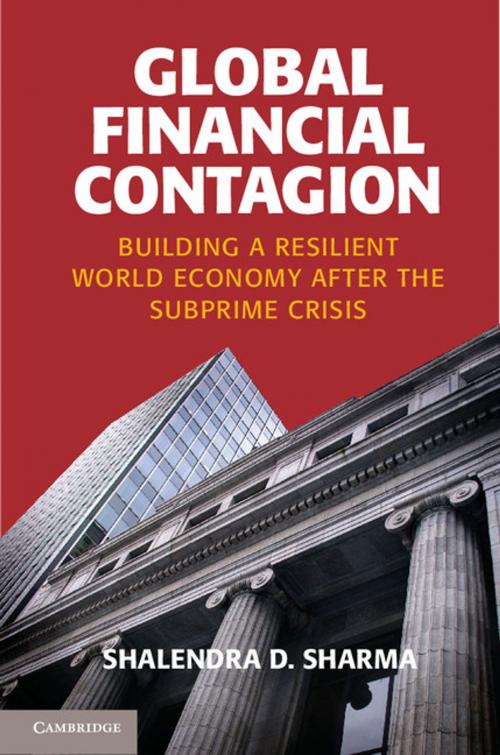Global Financial Contagion
Building a Resilient World Economy after the Subprime Crisis
Business & Finance, Economics, International Economics, International| Author: | Shalendra D. Sharma | ISBN: | 9781107702714 |
| Publisher: | Cambridge University Press | Publication: | October 14, 2013 |
| Imprint: | Cambridge University Press | Language: | English |
| Author: | Shalendra D. Sharma |
| ISBN: | 9781107702714 |
| Publisher: | Cambridge University Press |
| Publication: | October 14, 2013 |
| Imprint: | Cambridge University Press |
| Language: | English |
This book is an authoritative account of the economic and political roots of the 2008 financial crisis. It examines why it was triggered in the United States, why it morphed into the great recession, and why the contagion spread with such ferocity around the globe. It also examines how and why economies - including the Eurozone, Russia, China, India, East Asia, and the Middle East - have been impacted and explores their response to the unprecedented challenges of the crisis and the effectiveness of their policy measures. Global Financial Contagion specifically looks at how the Obama Administration's policy missteps have contributed to America's huge debt and slow recovery, why the Eurozone's response to its existential crisis has become a never-ending saga, and why the G20's efforts to create a new international financial architecture may fall short. This book will long be regarded as the standard account of the crisis and its aftermath.
This book is an authoritative account of the economic and political roots of the 2008 financial crisis. It examines why it was triggered in the United States, why it morphed into the great recession, and why the contagion spread with such ferocity around the globe. It also examines how and why economies - including the Eurozone, Russia, China, India, East Asia, and the Middle East - have been impacted and explores their response to the unprecedented challenges of the crisis and the effectiveness of their policy measures. Global Financial Contagion specifically looks at how the Obama Administration's policy missteps have contributed to America's huge debt and slow recovery, why the Eurozone's response to its existential crisis has become a never-ending saga, and why the G20's efforts to create a new international financial architecture may fall short. This book will long be regarded as the standard account of the crisis and its aftermath.















